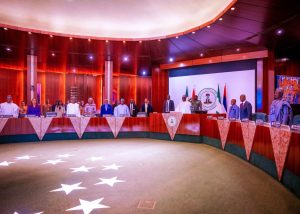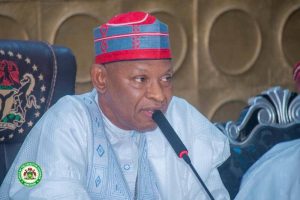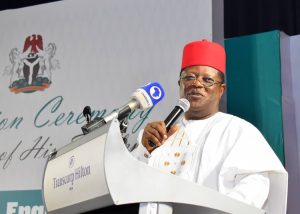
President Bola Ahmed Tinubu on Friday rejected the recommendation of the National Economic Council (NEC) for the withdrawal of the proposed tax reforms bills, saying the proposals should be allowed to go through legislative process.
NEC on Thursday recommended the withdrawal of the tax reform bills from the National Assembly to pave the way for comprehensive consultation and consensus-building among key stakeholders.
The Special Adviser to the President on Information and Strategy, Mr. Bayo Onanuga, said in a statement in Abuja that the president “believes that the legislative process, which has already begun, provides an opportunity for inputs and necessary changes without withdrawing the bills from the National Assembly.”
The statement partly read, “President Bola Tinubu has received the National Economic Council’s recommendation that the tax reform bills already sent to the National Assembly be withdrawn for further consultation.
“President Tinubu commends the National Economic Council members, especially Vice President Kashim Shettima and the 36 governors, for their advice.
“He believes that the legislative process, which has already begun, provides an opportunity for inputs and necessary changes without withdrawing the bills from the National Assembly.“While urging the NEC to allow the process to take its full course, President Tinubu welcomes further consultations and engagement with key stakeholders to address any reservations about the bills while the National Assembly considers them for passage.”
It read further, “When President Tinubu set up the Presidential Committee on Tax and Fiscal Policy Reform in August 2023, he had only one objective: to reposition the economy for better productivity and efficiency and make the operating environment for investment and businesses more conducive. This objective remains more critical even today than ever before.
“The Committee worked for over a year and received inputs from various segments of society across the geopolitical zones, including trade associations, professional bodies, different ministries and government agencies, governors, traders, students, business owners, and the organised private sector.
“The tax reform bills that emerged were distilled from the extensive work of the Presidential Committee. The tax bills before the National Assembly aim to streamline Nigeria’s tax administration processes, completely overhaul the nation’s tax operations, and align them with global best practices.”
It added, “The bills’ overarching objective is to effectively coordinate federal, state, and local tax authorities, thereby eliminating the overlapping responsibilities, confusion, and inefficiency that have plagued tax administration in Nigeria for decades.
“Under existing laws, taxes like Company Income Tax (CIT), Personal Income Tax (PIT), Capital Gains Tax (CGT), Petroleum Profits Tax (PPT), Tertiary Education Tax (TET), Value-Added Tax (VAT), and other taxing provisions in numerous laws are administered separately, with individual legislative frameworks.
“The proposed reforms seek to consolidate these numerous taxes, integrating CIT, PIT, CGT, VAT, PPT, and excise duties into a unified structure to reduce administrative fragmentation.
“While there may be differences in approach or specific provisions of the new tax bills, what is not in contention is the need to review our tax laws and how we administer them to serve our overall national development agenda.
“President Tinubu will continue to respect and welcome the advice and recommendations of the National Economic Council, an essential constitutional organ of government on economic matters.”






